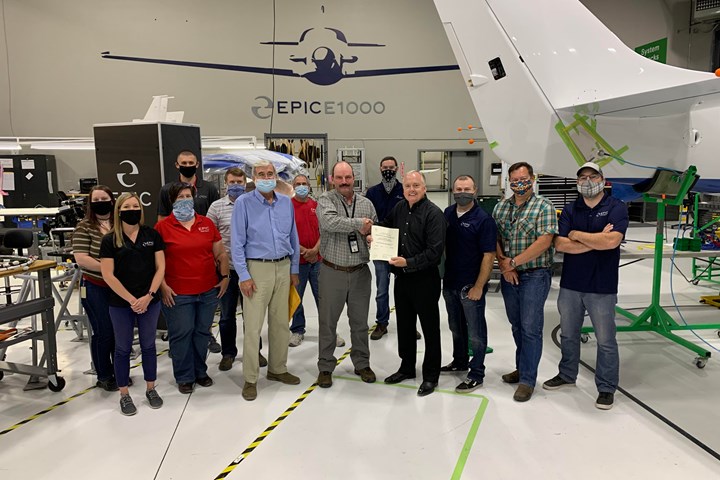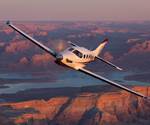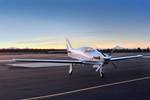Epic receives FAA Production Certificate for carbon fiber E1000 aircraft
In light of the pandemic, the FAA and Epic devised new processes to complete the required reviews and audits prior to the final on-site assessment.

Source | Epic Aircraft
(Bend, Oreg., U.S.) announced on July 23 that it has received an FAA Production Certificate (PC) for its E1000 all-carbon fiber, six-seat, single-engine turboprop. Following the aircraft’s first completed deliveries in May, the PC enables Epic to accelerate aircraft deliveries via manufacture, flight test and issue airworthiness certificates with reduced FAA presence.
“Achieving FAA Production Certificate is a tremendous milestone,” says Epic CEO, Doug King. “It is a rigorous process involving the approval of a vast number of documents, processes and systems, with composites adding additional complexity. This approval validates the efforts of our team and the investments we have made toward the aircraft.”
The company’s pursuit of FAA Production Certification started years ago, in tandem with its Type Certification program, which concluded in November 2019. Epic says it was poised several months ago to complete the FAA Production Audit, a precursor to Production Certificate, when the COVID-19 pandemic disrupted plans.
FAA-mandated travel limitations restricted on-site visits, which are typically essential to the PC approval process. In response, the FAA and Epic collaborated to devise new processes, using remote technologies to conduct the required series of reviews and audits, prior to the final on-site assessment. The company has completed three customer aircraft deliveries so far this year, with plans to now further accelerate production schedules.
Related Content
-
Prepreg compression molding supports higher-rate propeller manufacturing
To meet increasing UAV market demands, Mejzlik Propellers has added a higher-rate compression molding line to its custom CFRP propeller capabilities.
-
Welding is not bonding
Discussion of the issues in our understanding of thermoplastic composite welded structures and certification of the latest materials and welding technologies for future airframes.
-
The potential for thermoplastic composite nacelles
Collins Aerospace draws on global team, decades of experience to demonstrate large, curved AFP and welded structures for the next generation of aircraft.



